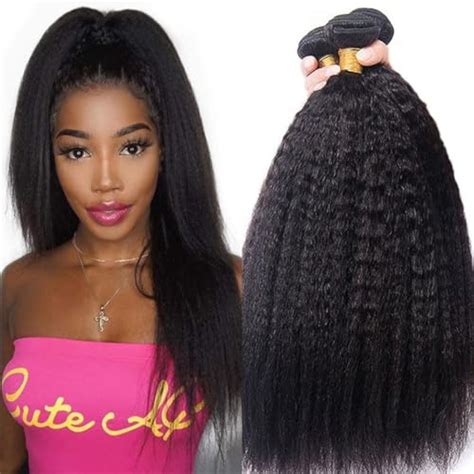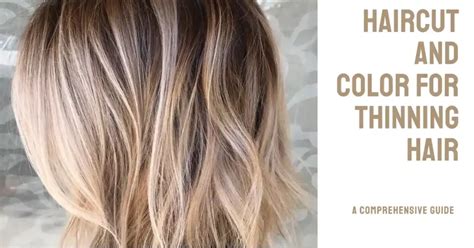Hair thinning, a prevalent concern affecting numerous individuals, can significantly impact self-confidence and overall well-being. To address this challenge, hair thinning extensions have emerged as an innovative solution, offering a non-invasive approach to achieving fuller, more voluminous hair.

Understanding Hair Thinning and Its Causes
Hair thinning, technically known as alopecia, encompasses a range of conditions that lead to a reduction in hair density. The American Academy of Dermatology (AAD) estimates that approximately 50% of men and 25% of women experience some form of hair thinning by the age of 50. Various factors contribute to this condition, including:
- Genetics
- Aging
- Hormonal changes
- Medical conditions
- Medications
- Environmental factors
Identifying Hair Thinning Needs: Pain Points and Motivations
Individuals seeking hair thinning extensions typically share common pain points and motivations that drive their decision-making:
Pain Points:
- Low self-esteem due to hair loss
- Difficulty styling and managing thin hair
- Inconvenience of daily hair maintenance
- Financial burden of ongoing hair restoration treatments
Motivations:
- Desire for fuller, more voluminous hair
- Improved self-confidence and enhanced appearance
- Convenience and cost-effectiveness
- Natural-looking hair restoration
Benefits of Hair Thinning Extensions
Hair thinning extensions provide numerous benefits that address the pain points and motivations of individuals seeking hair restoration:
- Non-invasive: Unlike surgical hair transplantation, extensions do not involve invasive procedures, minimizing discomfort and recovery time.
- Immediate results: Extensions instantly add volume and thickness to hair, providing immediate visible results.
- Natural appearance: Modern extension techniques create a natural-looking blend with existing hair, making them virtually undetectable.
- Versatility: Extensions can be styled, colored, and cut like natural hair, allowing for endless customization options.
- Convenience: Extensions require minimal daily maintenance and can be removed and reapplied as needed.
Types of Hair Thinning Extensions
The market offers a wide range of hair thinning extensions, each with unique characteristics and benefits. Popular types include:
- Tape-in extensions: Thin, adhesive-backed extensions that adhere to natural hair.
- Clip-in extensions: Temporary extensions that clip into place, providing instant volume.
- Halo extensions: A full-length, circular extension that sits around the head, blending with natural hair.
- Microlink extensions: Individual extensions that are attached to natural hair using small beads.
- Fusion extensions: Heat-bonded extensions that are fused to natural hair for a more permanent hold.
Choosing the Right Hair Thinning Extensions
Selecting the ideal hair thinning extensions involves considering factors such as:
- Hair type and density
- Desired length and volume
- Lifestyle and maintenance preferences
- Professional installation and maintenance availability
Professional Installation and Maintenance
Professional installation and maintenance are essential to ensure the longevity and natural appearance of hair thinning extensions. Skilled stylists assess hair health, choose the appropriate extensions, and apply them meticulously to avoid damage. Regular maintenance appointments ensure optimal blending, longevity, and scalp health.
Innovations in Hair Thinning Extensions
The hair extension industry is constantly evolving, introducing innovative technologies and techniques that enhance the user experience. Notable advancements include:
- Ultra-thin extensions: Ultra-fine, seamless extensions that blend seamlessly with natural hair.
- Color-customizable extensions: Extensions that can be matched to any hair color, ensuring a personalized and natural look.
- Heat-resistant extensions: Extensions that withstand heat styling for versatile styling options.
- Clip-on halo extensions: Easy-to-apply halo extensions that provide instant volume without damaging natural hair.
Future Trends in Hair Thinning Extensions
As technology continues to advance, the future of hair thinning extensions holds exciting prospects:
- Personalized extensions: AI-powered hair scanning and analysis could lead to custom-created extensions that perfectly match hair texture, color, and density.
- Virtual try-ons: Augmented reality (AR) applications may allow individuals to virtually try on different extension styles and colors before committing.
- Sustainable extensions: Eco-friendly materials and ethical sourcing practices will become increasingly important for extension manufacturers.
- Self-application extensions: Innovations in adhesive technology could make self-application of extensions more accessible and user-friendly.
Conclusion
Hair thinning extensions have revolutionized the hair restoration industry, offering a non-invasive and convenient solution for individuals seeking fuller, more voluminous hair. By understanding the pain points and motivations of hair thinning sufferers, professionals can effectively address their needs and recommend suitable extensions. As innovation continues to push the boundaries of this field, the future of hair thinning extensions promises even more personalized, natural-looking, and user-friendly solutions.
Additional Information
Table 1: Types of Hair Thinning Extensions
| Type | Description |
|---|---|
| Tape-in | Thin, adhesive-backed extensions that adhere to natural hair |
| Clip-in | Temporary extensions that clip into place, providing instant volume |
| Halo | A full-length, circular extension that sits around the head, blending with natural hair |
| Microlink | Individual extensions that are attached to natural hair using small beads |
| Fusion | Heat-bonded extensions that are fused to natural hair for a more permanent hold |
Table 2: Pain Points of Hair Thinning
| Pain Point | Explanation |
|---|---|
| Low self-esteem | Hair thinning can negatively impact self-confidence and self-image |
| Difficulty styling | Thin hair can be more difficult to style and manage |
| Inconvenience | Daily hair maintenance can be time-consuming and inconvenient |
| Financial burden | Ongoing hair restoration treatments can be costly |
Table 3: Motivations for Hair Thinning Extensions
| Motivation | Explanation |
|---|---|
| Desire for fuller hair | Extensions provide instant volume and thickness, creating a fuller look |
| Improved self-confidence | Fuller hair can enhance self-confidence and improve overall appearance |
| Convenience | Extensions offer a convenient and cost-effective alternative to invasive hair restoration procedures |
| Natural-looking results | Modern extension techniques create a natural-looking blend with existing hair |
Table 4: Benefits of Hair Thinning Extensions
| Benefit | Explanation |
|---|---|
| Non-invasive | Extensions do not involve surgical procedures, minimizing discomfort and recovery time |
| Immediate results | Extensions provide instant visible results, adding volume and thickness to hair |
| Natural appearance | Modern extension techniques create a natural-looking blend with existing hair |
| Versatility | Extensions can be styled, colored, and cut like natural hair, allowing for endless customization options |
| Convenience | Extensions require minimal daily maintenance and can be removed and reapplied as needed |
